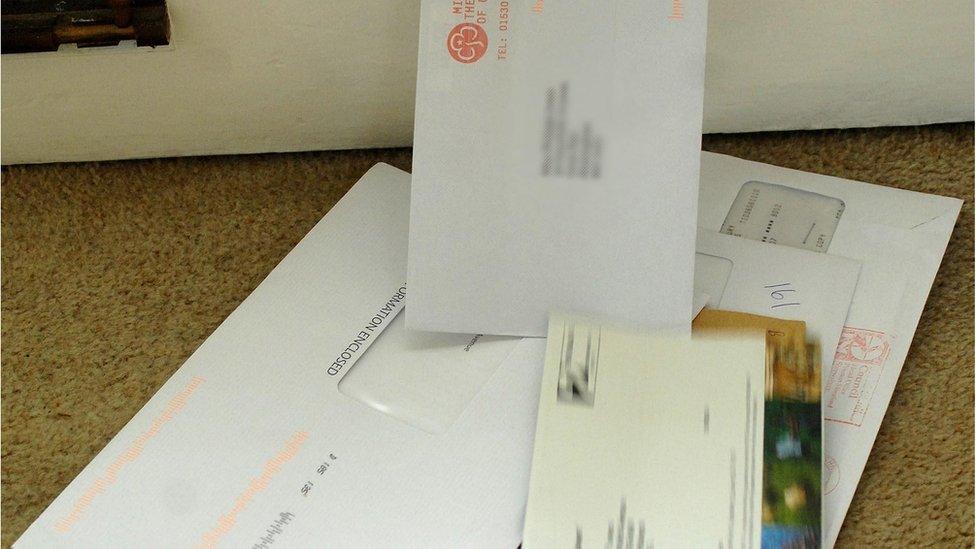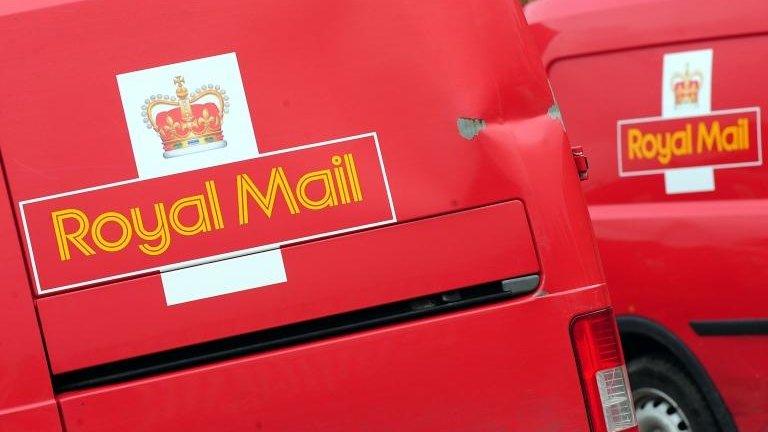Royal Mail 'failing to tackle' fraud
- Published

Royal Mail has been accused of failing to crack down on scammers contacting vulnerable people via the postal service.
The Daily Mail, external says letters sent via bulk mail contracts appear trustworthy as they feature Royal Mail branding on the envelopes.
People are said to have lost money after responding to the fake offers.
Royal Mail says it is illegal for it to open letters, preventing it from stopping fraudulent post deliveries.
The firm said it understood the "upset and disquiet" that scam mail causes the public.
"We have closely examined the list of companies suspected by the Daily Mail of sending scam mail. We have already passed it to our partners in the National Trading Standards Scams Team so that they can investigate further," the company said.
It is alleged the scammers pay a company to print their letters in bulk. They contain messages from fake clairvoyants, prize-draw scams and illegal advertisements for unlicensed health remedies.
If printed abroad, the letters are then taken to the UK and firms here sort and mass transport them to Royal Mail, which makes the final delivery to peoples' homes.
The Royal Mail logo is printed on the envelopes.
What can be done?
Whistl is one of the firms which provides Royal Mail with the letters to deliver.
In a statement on its website, external it said: "Scam mail is a terrible abuse of the postal system and it is unacceptable how vulnerable people are targeted by these scammers. Scamming is also not isolated to mail but is frequently carried out using other methods of communications such as email, text and through social media channels."
The firm said once made aware of scam mail it acts to "terminate the relevant contract" with the organisation involved.
"But we acknowledge as an industry we need to do more," the company said.
The Postal Services Act 2000 makes it an offence to open postal items to look at the contents. This means that once the envelopes are sealed, neither Royal Mail or the intermediary companies delivering the mail to Royal Mail for final delivery are permitted to open them and assess the content.
Royal Mail said that by working with enforcement agencies it had since 2014 prevented 22 million scam items of post from reaching UK households and businesses.
"We simply do not want to handle scam mail or make any money from this terrible activity," the company said.
Royal Mail said employees are being trained to help spot the scams.
"Since 2014, officers from Trading Standards have held dedicated training sessions at our delivery offices. This training aims to improve awareness of scam mail among thousands of postmen and women so they report suspect items and households for whom they have particular concern", a spokesman told the BBC.
These training sessions have led to over 700 victims being identified.
- Published19 May 2016

- Published16 June 2015
